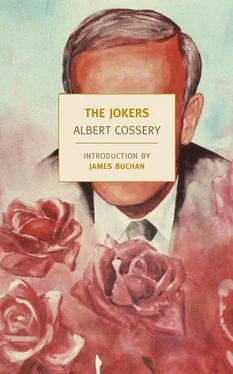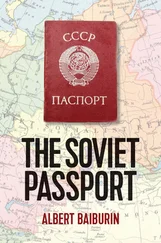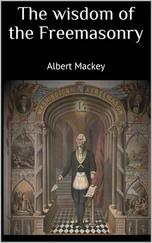“Virility,” said Heykal. “Poor Abdel Halim was only so sure he’d lost his because he was wasting it on an old woman with faded charms. His snobbery — his obsessive desire to be the lover of a famous singer — overwhelmed everything else. It would have been unworthy of his fortune to sleep with some unknown young woman who nobody talked about but who would have satisfied his desire. People would call him cheap. He just wanted to impress his fellow citizens.”
“That’s entirely correct,” said Riad. “But that’s not all. Would you believe what they found on the wall above the urinal? A poster with a picture of the governor and a text extolling his virtues! Strange coincidence, don’t you think?”
“What exactly are you saying? That the portrait of the governor was responsible for the heart attack?”
“Indubitably. Abdel Halim was, by several accounts, drunk. The governor’s face looking down on him while he urinated — reminding him, you could say, of their bone of contention…What a terrible shock!”
“Interesting theory,” admitted Heykal.
“And it’s a crime! You could justifiably claim that the governor killed him. Indirectly, of course, but still — doesn’t change the fact that it happened that way. So what do you think of that?”
Once again Riad batted his eyes; he was like a novice hooker who has but a single trick with which to launch her career. He wanted Heykal to know that he too possessed a critical mind, that he could savor the humor of the situation just as much as Heykal. But his plan fell flat. His companion was uninterested.
“Nothing to say?” Riad was downcast. “I would’ve thought a story like that was made to please you.”
“It pleases me enormously,” said Heykal, in order not to disappoint the young man totally.
Riad smiled hopefully but without batting his eyes; it was useless. He launched into a violent diatribe against the governor, certain that Heykal would approve.
“The governor has launched a brazen ad campaign,” he said. “He must think we’re imbeciles. What I read on that poster was absolutely inane — stupefying. His abuse of power has gone too far, don’t you think?”
“My dear Riad, you’re much too young to be able to appreciate the man and his merits,” responded Heykal. “He’s an exceptional person; he knows what he’s doing. I admire him more and more with each day. Your naiveté pains me.”
Riad’s delicate, feminine features expressed infinite disappointment, as if he’d just been told of his own death. But it was worse: it was the collapse of a whole way of looking at things he had believed he shared with Heykal. He searched in vain for an appropriate reply to Heykal’s condescending allusion to his youth, but his thoughts were interrupted by the distant roar of an ambulance heading toward the casino. It got louder as it approached, piercing the air with its anguished wail. At the sound of this harbinger of disaster, the people around them froze in expectation. Riad, head swaying, looked Heykal up and down, and his smug expression returned, as if the noise of the siren had proved him right. But Heykal had turned back to the governor’s box; he was transfixed by the spectacle taking place there. The governor was standing on his chair, scanning the room with his big, bulging eyes in an attempt to locate the origin of the danger; he looked ready to crush a revolution. Then the siren stopped, and Soad let out a peal of laughter. She was looking at Heykal; their eyes met, and his smile was more mocking than ever.
That morning, looking out at the sea from high up on his sunny terrace, Karim had had an intuition that the day would be ripe with comical events. Now, giving them time to materialize, he took short, even steps down the long, dusty avenue, stopping from time to time in the shade of one of the bordering trees. He was ready, primed for the unexpected; he noticed the smallest detail of the dizzying spectacle the street presented as workers and people seeking work milled around, ran into him, jostled past, and overwhelmed him with words and gestures that seemed to be invested with an inscrutable, fateful significance. Karim was as happy as could be. Nothing gave him more pleasure than to wander the streets in search of the unexpected. Everything he saw and heard made him indescribably happy, increasing his good cheer. The darkened interiors of the shops looked like dens of mystery, and his mind filled with sensual images of the refinements of seduction, so that he lingered in the doorways hoping to glimpse something thrilling inside. One thing he always hoped to stumble on was the kind of meaningless incident that becomes a pretext for bouts of invective. He loved listening to the men angrily insulting each other in the most colorful language. There was one particular expression that he was always certain to hear every time he observed an altercation between two men. No matter what their social class — and most of the time these fights broke out among the poorest of the poor — one man was sure to say to the other, with an air of outraged dignity, “Don’t you know who I am?” This delighted Karim. How did people come by this exaggerated self-regard? He’d always wanted to find out. It was unbelievable: in this city any old bum took himself for a luminary. Start with the government baptizing that crumbling road by the sea a “strategic route.” These delusions of grandeur trickled down from on high! All the arrogant trash-talkers were only following the honorable example of their government.
But it was not just with the intention of taking a leisurely stroll that Karim found himself, at such an early hour, out in the blazing sun on a major thoroughfare and among a sullen mob moving sluggishly through the heat and dust. Yesterday evening he’d received an official summons ordering him to present himself for questioning. This hadn’t thrown him in the least; he’d expected it. It was the follow-up to the inquiry the police were conducting because of the cursed strategic route. So well before the appointed hour he’d gone out to savor the atmosphere of the street at leisure and to prepare himself for the interrogation, which would determine whether he could stay on in his new apartment. While he dawdled, he wondered if that old wheezy policeman who’d risked death to climb up his six flights of stairs a week earlier had kept his promise to write a favorable report. Would he, after accepting the kite, turn out to be an ingrate? Karim replayed the scene in his memory — the painful hesitation of the aging father who suspected a bribe. That he might have succeeded in corrupting an officer in the line of duty made him laugh, but only for an instant; he didn’t feel calm at all. He’d still have to answer pointless questions and grovel and snivel in order to get them to forgive his past as a revolutionary. It required preparation. Like an actor getting ready for the role of his life, he began to transform himself into the picture of humility, twisting his face into the expression of someone crushed by the burden of his responsibilities. Unfortunately there was no mirror, no window in which to examine himself. To rehearse a role of such import without being able to correct the inevitable flaws — and however small, they could still cause damage — was proving an arduous, challenging task. He tried resuming his normal look, smiling broadly to erase the expression of suffering from his face. No matter what, he was sure to disgust them, all those idiot cops who wanted to kick him out of his comfortable lodging and throw him into a hovel in the slums. He was attached to his spacious terrace and the sea breeze, both essential for testing his kites. But more than that, it was a question of honor — above all because of that ineffably ingenuous “strategic route.” It was really too beautiful; how could he not plumb it to its most ludicrous depths? He just had to make sure to stick to his plan, acting inoffensive and obsequious, almost simpleminded, careful never to utter an intelligent word — that was the biggest risk. To demonstrate intelligence was as good as spitting in their faces. But how was he going to dim the sardonic glint in his eyes? Dark glasses? Pretend he had conjunctivitis? What a marvelous idea! Why hadn’t he thought of it earlier? But it was too late now, and anyway, he couldn’t afford to buy the glasses.
Читать дальше












